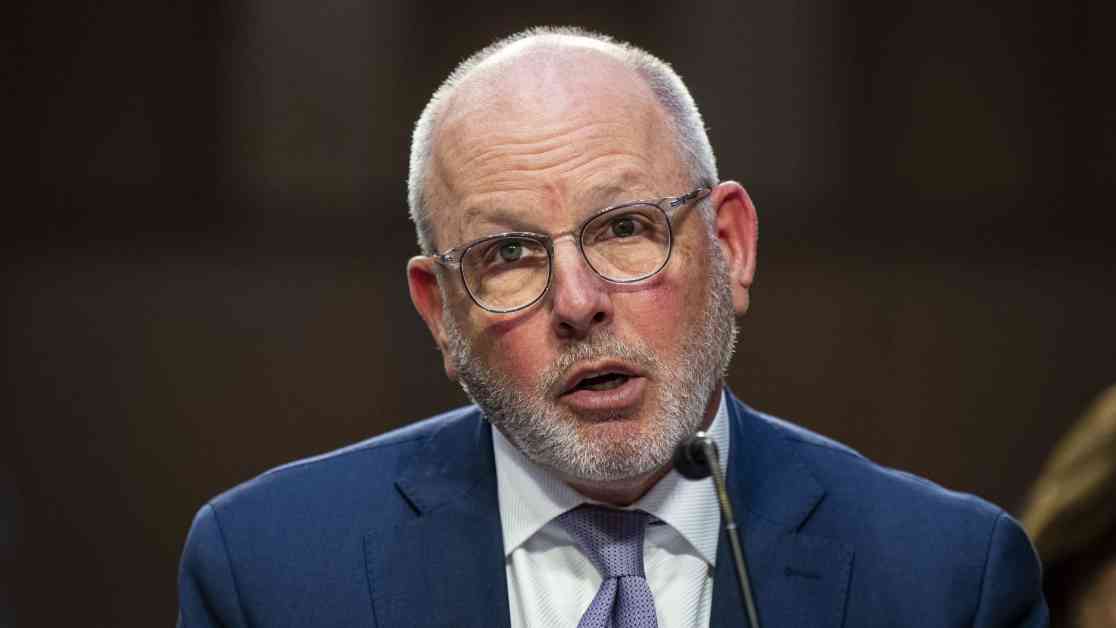David Joyner, the CEO of CVS Health, stood before the Senate Health, Education, Labor and Pensions Committee in Washington, D.C., on May 10, 2023, to defend pharmacy middlemen like his company’s Caremark unit. These entities have come under fire for allegedly inflating prescription medication prices, with Joyner pointing the finger at drug manufacturers for their “monopolistic tendencies” that contribute to the high costs of drugs in the United States.
In his testimony, Joyner, who assumed the position in October, took the opportunity to address the issue of pharmacy benefit managers, or PBMs, during CVS’ fourth-quarter earnings call. This departure from the norm for CVS’ quarterly calls comes at a time when lawmakers from both political parties and President Donald Trump have expressed interest in regulating PBMs due to concerns about their practices.
As one of the nation’s three largest PBMs, CVS’ Caremark unit administers approximately 80% of prescriptions in the U.S. These middlemen play a crucial role in negotiating rebates with drug manufacturers on behalf of insurers, establishing formularies of covered medications, and reimbursing pharmacies for prescriptions. However, critics argue that PBMs overcharge insurers, underpay pharmacies, and fail to pass on savings to patients.
Joyner acknowledged the financial strain that rising healthcare costs place on patients, employers, and the government. He attributed this trend to increased patient utilization of services, escalating healthcare provider expenses, labor shortages, and exorbitant price hikes for branded drugs. Despite these challenges, Joyner made a case for PBMs like Caremark as essential entities dedicated to cost containment within the drug supply chain.
According to Joyner, PBMs serve as a vital counterforce against the monopolistic behavior of drug manufacturers, which he claims have added $21 billion in annual gross drug spending through price increases in the early weeks of January alone. While he did not provide a specific source for this figure, Joyner cited economists’ estimates that PBMs contribute more than $100 billion in net value to the U.S. healthcare system annually.
On the other side of the debate, the pharmaceutical industry and lawmakers have criticized PBMs and insurers for allegedly pocketing savings from negotiated rebates and discounts instead of passing them on to patients. In a statement responding to Joyner’s testimony, PhRMA, the largest pharmaceutical lobbying group in the U.S., emphasized that PBMs are facing scrutiny from various stakeholders, including state attorneys general, policymakers, and the Federal Trade Commission, all of whom are investigating the impact of PBMs on healthcare costs and access.
Despite the diverging perspectives on the role of PBMs in the healthcare system, the debate underscores the complexity of the pharmaceutical industry’s pricing practices and the critical role that middlemen play in shaping drug costs for millions of Americans. As lawmakers continue to grapple with this issue, the future of drug pricing in the U.S. remains uncertain, with patients, providers, insurers, and policymakers all caught in the crossfire of competing interests.



















